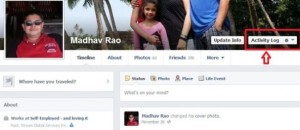In a recent escalation of sectarian violence between the tech-giant love triangle (Microsoft, Google, and Apple), Microsoft has accused Google Chrome of “collecting every keystroke you make” while Internet Explorer 8 “keeps your information private through two address bars and In Private browsing.”
The accusation – made in a post on Microsoft’s TechNet Edge which now seems to have been unpublished – was accompanied with a video featuring a product manager at Microsoft showing exactly what happens with Chrome (and IE):
NOTE: This video was originally available only to users who have Silverlight installed. However, I have downloaded the video and uploaded it onto YouTube – unaltered – so everyone can view it, regardless of if you have Silverlight installed or not.
Emil Protalinski, of Ars Technica, explored in detail the validity of Microsoft’s accusation and came up with this explanation:
Even though he [LePage] didn’t really elaborate, the reason for the striking difference for IE8’s and Chrome’s behaviors is really that simple: IE8 has two boxes [address bar and search bar] and Chrome has one [address bar and search bar combined into one].
…
The same behavior [as Chrome’s] occurs in IE8, but only in the search bar. LePage is only correct in his assertion that IE8 does not send information to anyone when the user types into the address bar.
Emil goes on to state:
LePage makes an important mistake in his accusation against Google: his statement should not be “Chrome sends a request back to Google” but it should be “Chrome sends a request back to the search provider.” He makes this distinction with IE8 but does not with Chrome. The information is being sent so that the search provider can help the user choose a query right in their browser.
We downloaded Fiddler to make some comparisons of our own. As we suspected, Chrome can be set to send information on every keystroke to Bing (or any other search engine that supports Search Suggestions) instead of Google.
So, to sum up, Microsoft is right to an extent; they have a valid point, but their argument has large holes in it. What is your opinion on the matter? Feel free to share in the comments below.
[via The Week]

 Email article
Email article
